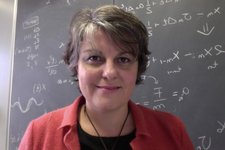
To parallel the development, during the last few decades, of novel experimental installations for the detection of increasingly challenging light-matter interactions - as exemplified by the last generation synchrotron and (free-electron) laser facilities around the world - with this project, I want to establish, develop and consolidate
novel quantum chemical methodologies and computational tools to model advanced (multiphoton) X-ray pectroscopies and photoionization/photoelectron phenomena, with the ambition of bridging experimental measurements and theory at an hitherto unprecedented level of detail and accuracy. While rapid experimental improvements are broadening the range of systems and processes that can be studied by spectroscopy, analogous developments must be pursued on the data analysis and theory side, since they are essential not only to understand specific systems, but also to define the information content in the spectroscopic probes.
To reach this goal, I specifically aim at combining the high flexibility and generality of (damped) response theory with the accuracy and systematic improvability of coupled cluster methods. For a meaningful comparison with experiment, other factors that influence the given observable molecular response, beyond the electronic structure of the sample, must be considered, e.g. environmental and relativistic effects. To tackle the increased computational cost with system size, multi-scale extensions (in particular quantum-mechanic/molecular-mechanic (QM/MM) polarizable-embedding schemes and multi-level approaches) of the proposed procedures will be pursued.
The developed methodologies will be implemented within freely available computer code and used to: gain insight into the observed effects and unravel their fundamental information content; benchmark less accurate computational methods; guide and assist experimentalists in the design and calibration of novel experiments, hereby meeting the challenges and needs set forth by modern spectroscopy. Their availability will moreover favor the establishment of long-term synergies between experimentalists and theoreticians, driving the growth of interdisciplinary research.
Project title:
Response to challenge: Coupled Cluster Response methods for challenging light-matter interactions
Area of research:
Chemical Sciences
Fellowship period:
1 Feb 2015 – 31 Jul 2016
Fellowship type:
AIAS-COFUND Marie Skłodowska-Curie fellow

This fellowship has received funding from the European Union’s Seventh Framework Programme for research, technological development and demonstration under the Marie Skłodowska-Curie grant agreement No 609033 and The Aarhus University Research Foundation.
